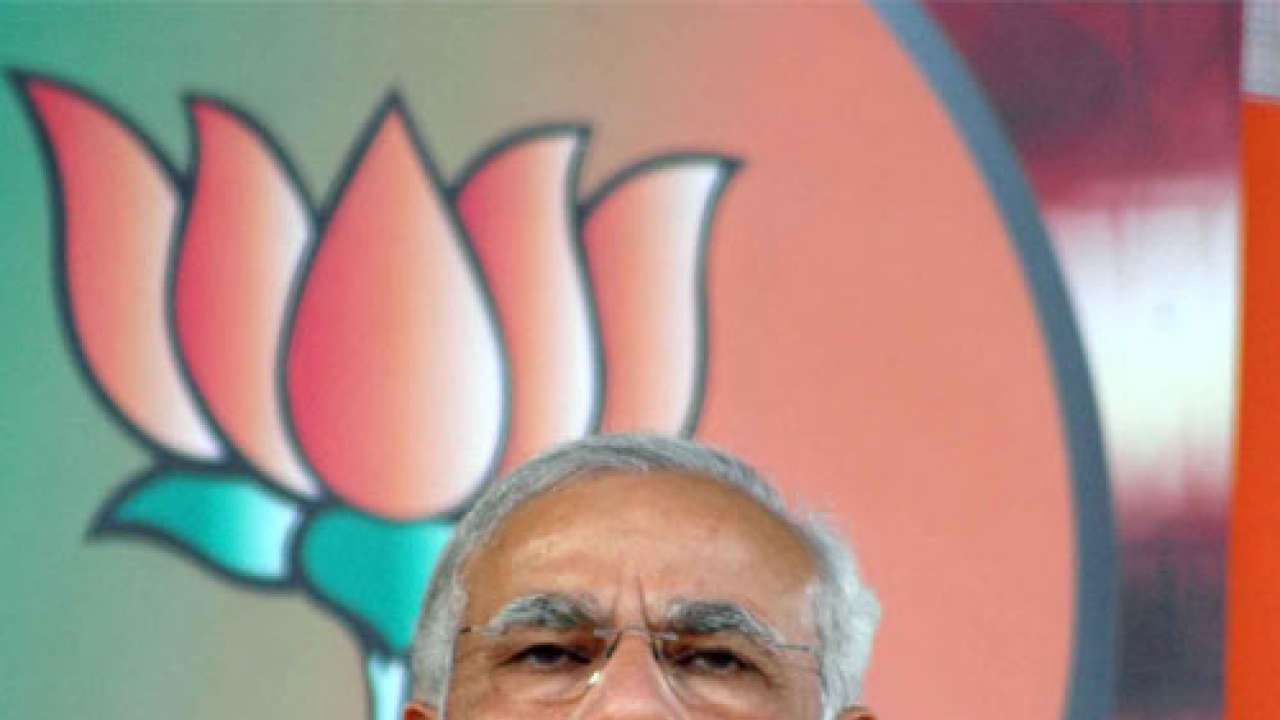
For the last one year or so, Narendra Modi’s political journey has set a new benchmark on how to run high profile campaigns that lead from the front, set the agenda, and make political opponents seem ridiculously unprepared, or even unfit for competition. The journey seemed modelled on the US presidential system, with the first step being a ‘win’ inside the party as the official choice for the prime ministerial candidate. The second step seemed, for a while, to be his personally led rally-a-day national campaign that will deliver 272 seats. The current polls that have collected data a few weeks ago think that this campaign has indeed brought him tantalizingly close to the finish line.
However, recent events have taken the sheen away from the neat story line listed above. The campaign has tried to establish Modi as a candidate with an appeal transcending caste and regional boundaries, anti-dynasty, an outsider from the usual ‘political establishment’, pro-economic reform and honest. But now that the campaign rubber meets the dirt road of Indian electoral politics, some of the imagined realities have to be shed. To his credit, Modi is not drinking his own Kool-Aid himself.
The compulsion of alliances with various parties and individuals such as Yeddyurappa and Sreeramulu in Karnataka, the PMK in Tamil Nadu, or Ram Vilas Paswan in Bihar has shattered the myth of a wave strong enough to carry the party on its own. All of these alliances are calculated to bring in vote blocs loyal to local leaders. The recent ticket distribution has also amply rewarded the children of most BJP leaders like (late) Pramod Mahajan, Yashwant Sinha, Saheb Singh Verma, among others. Going beyond dynastic patronage networks seems beyond the reach of Indian politics for a couple of more elections perhaps.
A manifesto clearly laying out an economically progressive agenda is still awaited. The latest BJP ads are vocally criticizing the one UPA policy that was good for our economy: gradual fuel price decontrol. Subsidies are bad, expect for the middle class perhaps. There have been lot of slogans but the choice of Varanasi for the elections tells us that Modi knows very well a religious right image will get more votes than an economic right one.
The biggest disappointment to his new young supporters, attracted by the campaign blitzkrieg of last the 12 months, would be a lack of commitment to clean politics. With the BJP fielding over 30% tainted candidates (similar to the Congress), according to the Association of Democratic Reforms, hopes that this time was different or that Modi could singlehandedly clean the system have been dashed.
If the BJP doesn’t listen to him, will he prevail over a coalition with even more power centres? Or more likely, he knows the ground reality better than his young supporters. The new image, projected primarily using technology platforms, is for the large number of first-time voters who could prove crucial in this election. There is no substance behind it.
Considering that the composition of candidates across parties is similar in character to any past election means that whichever party or grouping comes to power, we will see more of the same with different faces.
This parliament will also have young MPs who are sons or daughters who have inherited the patronage network of their parents, criminals who will use their position of power to stay out of jail and to jail their opponents, corrupt candidates who will need to create scams to payback their backers, and government policies paying off their constituents through various subsidies.
Given the long BJP campaign that was both refreshing and optimistic, the current decisions have created a dissonance that can undo the electoral gains so far. The BJP has been careful to delay these decisions as much as possible so that there is not enough time to undo the momentum so far built. This moment of weakness is ripe for political opponents to exploit if they can show the same energy as the BJP has in campaigning. The only saving grace for the BJP is a weak opposition that has proved incapable of making this a real contest. As before, it is possible that even if the pro-Modi sentiment wanes, the anti-UPA sentiment might still carry the day for the BJP. Whatever be the outcome, the hopes of the young voter have been dashed.
Saurabh Chandra is a Bangalore-based tech entrepreneur with an interest in public policy. You can follow his tweets on @saurabhchandra.